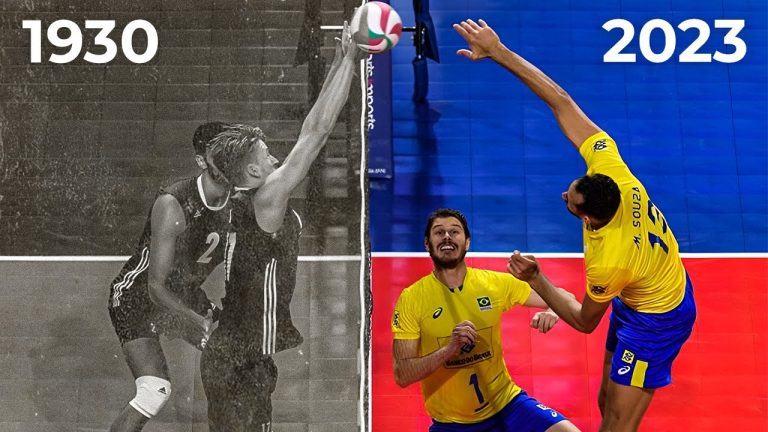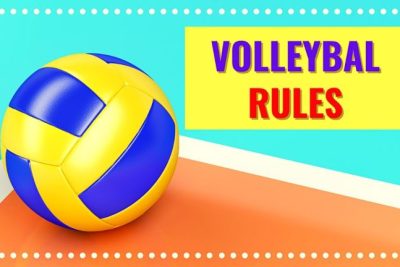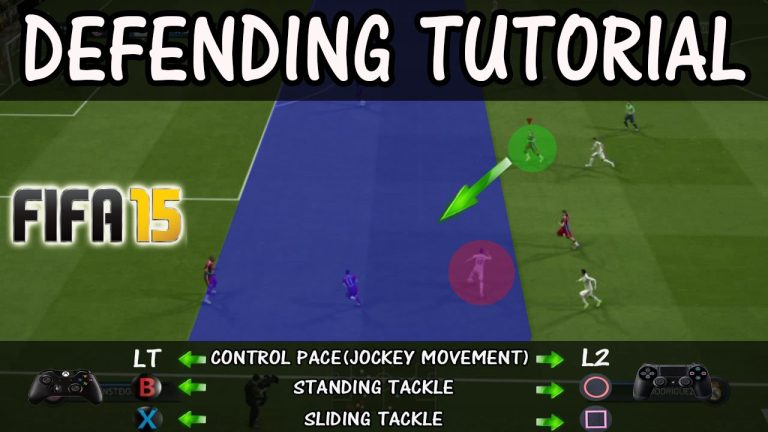
Are you a volleyball referee looking to level up your game management skills? Look no further! In this article, we will explore the key elements of game management for volleyball referees. From maintaining control on the court to making crucial decisions with confidence, we’ve got you covered. Get ready to enhance your officiating abilities and ensure a seamless and fair game for players and spectators alike. Let’s dive in!
How can a volleyball game be refereed?
When it comes to refereeing a volleyball game, there are key roles that need to be fulfilled. The second referee takes charge of the sideline opposite the first referee, ensuring fair play within a specific 12-foot area. Their responsibility involves smoothly transitioning with the ball during gameplay. Additionally, the line judges, positioned on opposite corners throughout the entire match, play a crucial role. They assist the first referee by making accurate in and out calls while also keeping a watchful eye on any touches made by blockers at the net. Together, these officials create a well-coordinated team to maintain the integrity of the game.
In the dynamic world of volleyball, effective refereeing is essential for a fair and competitive match. The second referee, positioned along the sideline opposite the first referee, demonstrates agility and precision within a 12-foot area, ensuring that the game flows smoothly. Meanwhile, the line judges strategically occupy opposite corners, providing assistance to the first referee. With their keen eyes and knowledge of the game, they make reliable judgments on in and out calls, as well as identifying any touches by blockers at the net. By working together seamlessly, these officials contribute to an exhilarating volleyball game where fairness and accuracy are paramount.
What are the roles and responsibilities of volleyball referees?
In the game of volleyball, the referees play a vital role in ensuring fair play and upholding the rules of the sport. Prior to the match, the referees must have a discussion to establish clear communication protocols, particularly regarding the signals that the second referee needs to convey to the first referee for various violations such as illegal ball handling, illegal back row actions, blocks, and attacks. During the game, it is the foremost duty of the first referee to promptly blow the whistle to signal any and all violations they observe, thus maintaining the integrity of the game and ensuring a level playing field for all teams involved.
What is the specific model used by referees in game management to compensate for errors in judgement?
The decision flow model of game management by referees aims to address errors in judgment through a systematic approach. Our model consists of three distinct stages. Firstly, the referee makes a quick and intuitive decision in response to a situation on the field. This initial judgment is followed by a second stage where the referee takes the time to carefully evaluate and deliberate on their decision. Finally, if upon reflection it is determined that the previous decision was incorrect, the referee chooses an appropriate compensation to rectify the error. This decision flow model ensures a comprehensive and fair approach to game management, allowing referees to navigate errors in judgment effectively.
By implementing a decision flow model, referees are able to effectively compensate for errors in judgment during game management. The model consists of three stages that work cohesively to ensure fairness and accuracy. Initially, the referee relies on their fast and intuitive decision-making skills to react promptly to a situation on the field. This is followed by a more deliberate evaluation of the decision, where the referee takes the time to carefully assess its accuracy. Finally, if it is determined in hindsight that the initial decision was flawed, the referee selects an appropriate compensation to rectify the error. This structured approach enables referees to maintain consistency and fairness in their decision-making process, ultimately enhancing the overall integrity of the game.
Mastering the Whistle: Proven Strategies for Effective Game Control
Mastering the Whistle: Proven Strategies for Effective Game Control
In the thrilling world of sports officiating, effective game control is the key to success. As a referee, it is vital to master the whistle and ensure fair play while maintaining control over the game. With years of experience and proven strategies, referees can confidently navigate any match, ensuring a smooth and enjoyable experience for players, coaches, and fans alike.
One crucial strategy for effective game control is clear communication. A well-placed whistle accompanied by concise and confident verbal instructions can instantly grab the attention of players and prevent potential disputes. By clearly and assertively relaying decisions and explanations, referees can establish their authority on the field, minimizing misunderstandings and maintaining the flow of the game.
Another essential element of mastering the whistle is maintaining consistency. Players and coaches rely on referees to enforce the rules consistently throughout the game. By applying the same standards to all participants, referees can gain respect and trust, ensuring a fair and unbiased playing field. Consistency in decision-making also contributes to the overall flow of the game, allowing players to focus on their performance without distractions or doubts.
Lastly, effective game control requires adaptability. Referees must be able to quickly assess the dynamics of each match and adjust their approach accordingly. Whether it’s managing a high-intensity rivalry or a friendly exhibition, being able to read the game and adapt their decisions and responses is crucial. This adaptability ensures that referees can maintain control and respond effectively to any situation that arises on the field.
Mastering the whistle is a skill that takes time and experience to develop. By implementing strategies such as clear communication, consistency, and adaptability, referees can enhance their game control abilities and create an environment where fair play thrives. With these proven strategies in their arsenal, referees can confidently take charge of any match, ensuring a memorable and enjoyable experience for all involved.
Game-Changing Calls: Techniques for Confident Volleyball Refereeing
Game-Changing Calls: Techniques for Confident Volleyball Refereeing
In the fast-paced world of volleyball, confident and accurate refereeing is crucial for fair and enjoyable gameplay. Referees play a vital role in making game-changing calls that can determine the outcome of a match. By mastering certain techniques, referees can enhance their abilities, ensuring they make clean and concise calls that catch the eye of players and spectators alike. With a keen eye for detail, impeccable timing, and effective communication, referees can create an environment of trust and fairness, making every game an exciting and memorable experience for all involved.
Winning the Court: Essential Tactics for Skillful Game Management
Winning the Court: Essential Tactics for Skillful Game Management
In the game of basketball, effective court management is crucial for securing victory. It requires a combination of strategic thinking, quick decision-making, and excellent communication skills. A skillful player knows how to read the court, anticipate the opponent’s moves, and make split-second decisions that can turn the tide of the game. By maintaining a strong presence on the court, staying focused on the game plan, and efficiently leading the team, players can pave the way to success.
However, successful court management is not limited to individual players alone. It also involves the entire team working together in harmony. Coordinated movements, synchronized plays, and clear communication amongst team members are vital for achieving optimal game management. By fostering a spirit of collaboration, maintaining a positive team dynamic, and constantly adapting strategies, a team can overcome challenges and emerge victorious. Ultimately, winning the court requires skillful game management that combines individual brilliance with collective effort.
The Referee’s Playbook: Unlocking Success Through Strategic Volleyball Officiating
In the dynamic world of volleyball officiating, the referee’s playbook holds the key to unlocking success. With strategic approaches and impeccable decision-making, referees play a crucial role in ensuring fair and balanced gameplay. Their ability to anticipate and adapt to the ever-changing dynamics of the game sets them apart as true masters of their craft. By expertly enforcing the rules, maintaining impartiality, and effectively managing player interactions, referees create an environment where athletes can thrive and showcase their skills. With every whistle blown and call made, the referee’s playbook becomes a powerful tool in shaping the outcome of a match, leaving a lasting impact on both players and spectators alike.
In the referee’s playbook, each chapter represents a strategic move towards achieving excellence. From positioning themselves to gain optimal vantage points to making split-second decisions with confidence, referees must possess a deep understanding of the game and its intricacies. By meticulously studying the rules and constantly honing their skills, they become the guardians of fairness, ensuring that every point is earned and every player is treated equally. The referee’s playbook goes beyond merely enforcing regulations; it embodies the spirit of the game, fostering an environment of sportsmanship, respect, and healthy competition. With each match they officiate, referees unlock success not just for themselves, but for the entire volleyball community.
In the fast-paced and high-pressure world of volleyball, effective game management is essential for referees to ensure fair play and a smooth flow of the game. By maintaining a strong presence on the court, making prompt and accurate decisions, and effectively communicating with players and coaches, referees can create an atmosphere of trust and respect. With their expertise and impartiality, referees play a crucial role in upholding the integrity of the game and ensuring a positive experience for all involved. So, next time you watch a volleyball match, take a moment to appreciate the skill and dedication of the referees who work tirelessly behind the scenes to keep the game running smoothly.





